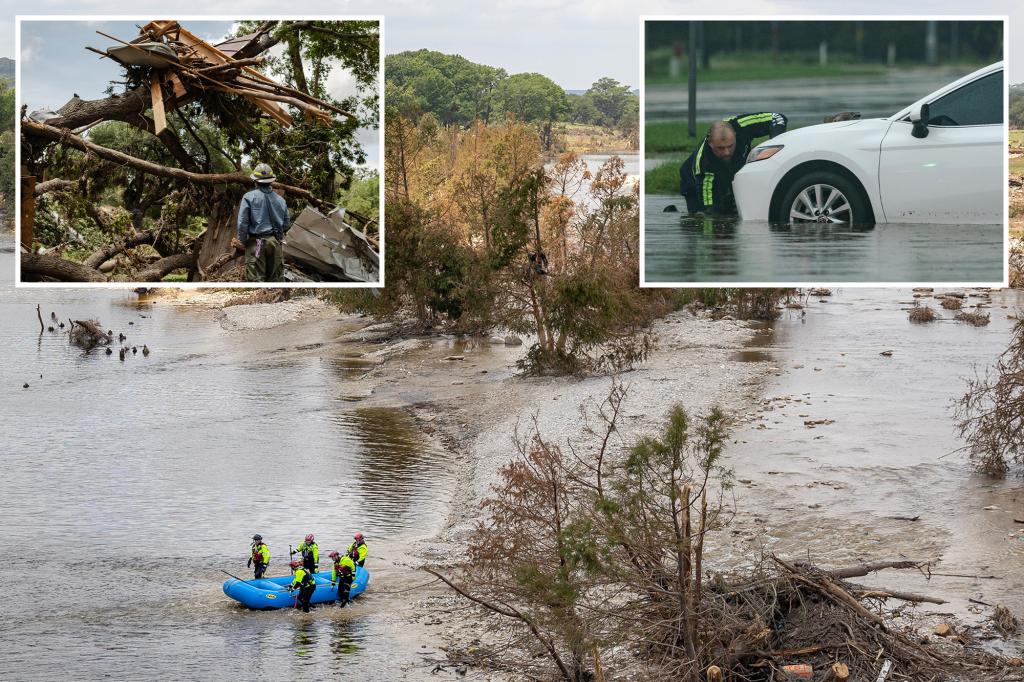Climate Change Impact on Global Agriculture: A Growing Concern
As climate change accelerates, its effects on global agriculture have become increasingly pronounced, with rising temperatures and erratic weather patterns threatening food security worldwide. This pressing issue, observed over the past decade, calls for immediate attention from policymakers, farmers, and consumers alike, as the stability of food systems hangs in the balance.
Understanding the Threats to Food Production
Recent studies indicate that climate change could reduce crop yields by as much as 30% in some regions by 2050, according to the Intergovernmental Panel on Climate Change (IPCC). The primary threats include altered precipitation patterns, increased frequency of droughts and floods, and the proliferation of pests and diseases.
“Farmers are already experiencing unpredictable weather, which makes planning for planting and harvesting seasons increasingly difficult,” said Dr. Emily Carter, an agricultural economist at the University of California. “This unpredictability not only affects crop yields but also impacts the livelihoods of millions of farmers worldwide.”
Rising Temperatures and Their Effects
One of the most significant factors contributing to agricultural challenges is the rise in global temperatures. According to the World Meteorological Organization, global temperatures have increased by approximately 1.1 degrees Celsius since the pre-industrial era. This rise has had a direct impact on the growing seasons of various crops.
- Corn: Sensitive to heat, corn yields can decline by 7% for every degree Celsius increase in temperature.
- Wheat: Higher temperatures can cause wheat to mature more quickly, resulting in lower yields and reduced quality.
- Rice: Flooding and heat stress have been shown to significantly reduce rice production, a staple for over half the world’s population.
“The science is clear; higher temperatures are not just an inconvenience; they are a threat to food production,” stated Dr. Alan Fischer, a climate scientist at the National Oceanic and Atmospheric Administration (NOAA). “We must adapt our agricultural practices to mitigate these impacts.”
Precipitation Patterns and Water Availability
In addition to rising temperatures, changes in precipitation patterns pose a serious challenge to agriculture. Regions that rely on consistent rainfall are facing prolonged droughts, while others experience intense flooding. For instance, the United States experienced one of its wettest years on record in 2020, leading to crop losses in several states.
According to the Food and Agriculture Organization (FAO), nearly 1.5 billion people worldwide depend on rainfed agriculture, making them particularly vulnerable to climate variability. Farmers in these regions often struggle to adapt to rapid changes, leading to food shortages and economic instability.
Adaptation Strategies for Farmers
To combat the adverse effects of climate change, farmers are increasingly turning to innovative agricultural practices. Sustainable farming techniques, such as crop rotation, cover cropping, and agroforestry, can enhance resilience to climate variability.
- Crop Rotation: Diversifying crops can improve soil health and reduce pest problems.
- Cover Cropping: Planting cover crops helps prevent soil erosion and retains moisture.
- Agroforestry: Integrating trees with crops can provide shade, reducing heat stress on plants.
“Adapting to climate change is not just a necessity; it’s an opportunity for farmers to innovate and improve their practices,” noted Dr. Sarah Thompson, a sustainable agriculture expert. “By adopting these methods, farmers can not only safeguard their yields but also contribute to environmental sustainability.”
The Role of Technology in Modern Agriculture
Advancements in technology also play a crucial role in helping farmers adapt to changing conditions. Precision agriculture, which utilizes data analytics and satellite imagery, allows farmers to monitor crop health and optimize resource use efficiently. This technology can lead to improved yields while minimizing environmental impact.
Furthermore, genetically modified organisms (GMOs) are being developed to withstand extreme weather conditions, pests, and diseases. For example, drought-resistant corn varieties are being cultivated in regions prone to water scarcity, providing a lifeline for farmers facing climate-induced challenges.
Global Initiatives and Policy Responses
On a global scale, numerous initiatives are underway to address the impacts of climate change on agriculture. The Paris Agreement aims to limit global warming to well below 2 degrees Celsius, which would significantly reduce the risks associated with climate change. Additionally, the United Nations has launched the 2030 Agenda for Sustainable Development, which includes specific goals related to food security and climate resilience.
Countries are also urged to invest in agricultural research and development to foster innovation in climate-smart practices. For instance, the European Union has pledged billions to support sustainable farming initiatives across its member states.
The Future of Food Security
The intersection of climate change and agriculture presents both challenges and opportunities. As global populations continue to rise, ensuring food security in the face of climate change will require cooperation, innovation, and commitment at every level—from local farmers to international policymakers.
Experts agree that the time for action is now. “Failure to address these challenges could lead to dire consequences, including increased hunger and poverty,” warned Dr. Carter. “We must prioritize sustainable agricultural practices and support farmers in adapting to new realities.”
Conclusion: A Call to Action
The effects of climate change on global agriculture are undeniable and demand urgent attention. As we look to the future, it is imperative for governments, organizations, and individuals to collaborate in promoting sustainable practices and supporting innovation in agriculture. Only through collective action can we safeguard our food systems and ensure a resilient future for generations to come.
If you’re interested in learning more about sustainable agriculture practices or contributing to local initiatives, consider reaching out to community organizations or educational programs focused on climate resilience in farming.



